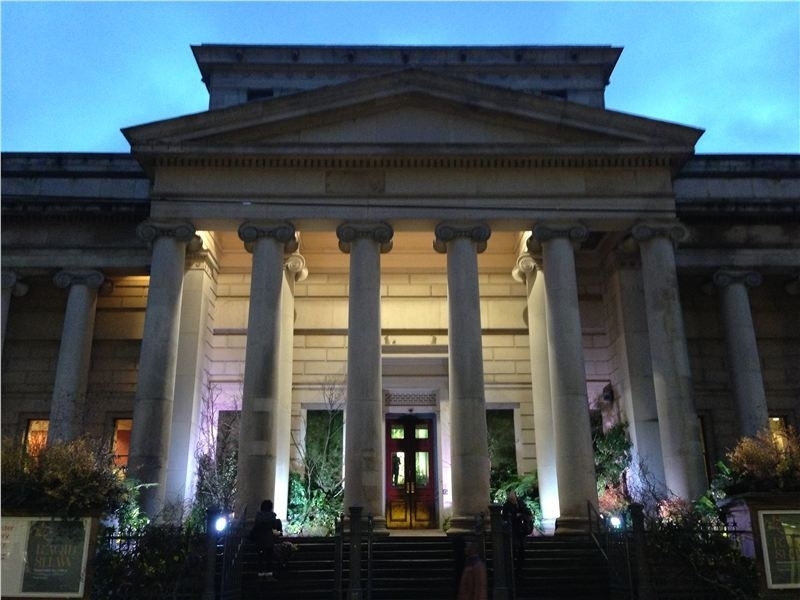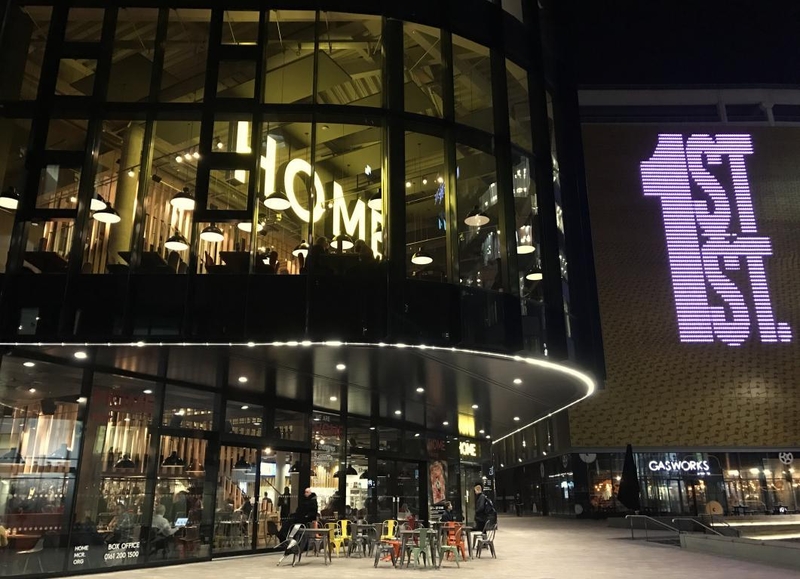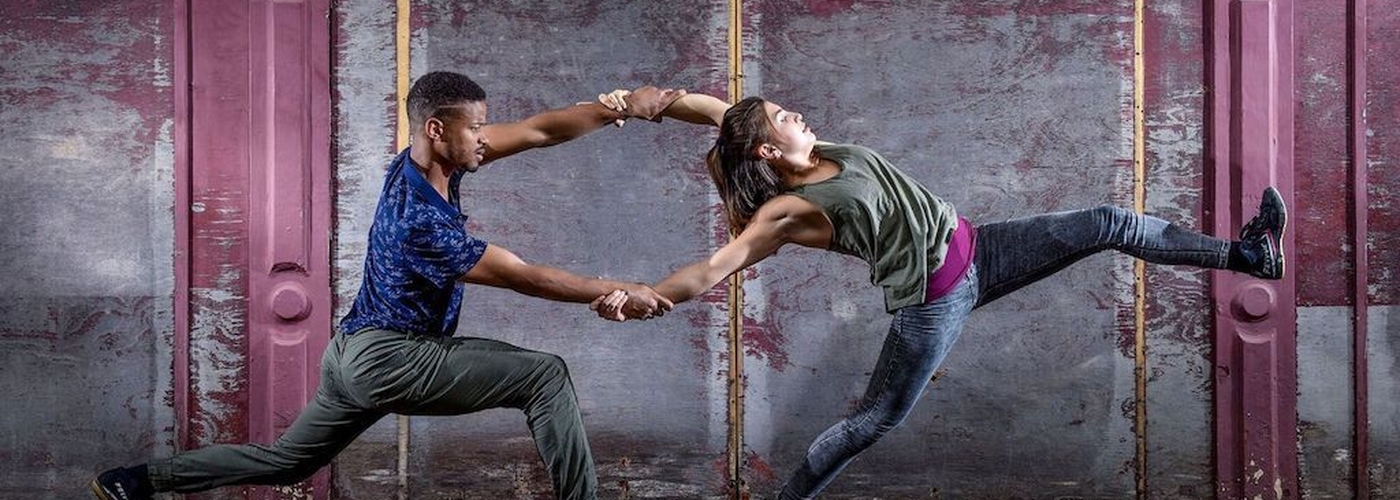The industry is struggling to survive, warns Cllr Luthfur Rahman in an open letter to UK culture secretary
Manchester cultural lead councillor Luthfur Rahman has sent an open letter to culture secretary Oliver Dowden, calling for more support for the industry and a role in shaping its post-pandemic future.
The letter calls for urgent financial support and an effective recovery plan for the cultural sector, which has been massively hit by the corona crisis and is now struggling for its very survival. It also includes an offer of direct support from the city - which is the second most visited city in England after London - to help shape the way forward.
Manchester is renowned for its vast cultural offer of museums, galleries, orchestras, festivals and vibrant music scene. Its global strength and the city region's creative and digital industry sectors is also highlighted in Greater Manchester's local industrial strategy.

Councillor Luthfur Rahman - executive member for culture, leisure and skills at Manchester City Council - said: "We will not stand by in Manchester and watch our theatres, museums, and galleries take their last gasp. Every day we hear from organisations across the city that tell us they are coming closer and closer to their final curtain.
"Without more support, and crucially without being able to have a say in what support is needed and what the future could look like if the right support was in place, this could easily be the end of the road for many artists and cultural organisations, and for what has been for generations the life-blood of our city.
"Culture and the arts are in Manchester's DNA and have shown themselves time and again to be central to the city's enduring strength, resilience, and world-wide reputation.
"We need urgent action now to keep the cultural heart beating, not just of our city but that of the whole country. As rightful recognition and long overdue payback for the massive sums of money that the cultural sector in Manchester and the rest of the country has for years put directly into the economy.
"And of course this isn't just about at-risk jobs in the cultural sector itself; the cultural economy supports a huge number of other jobs as part of the wider visitor economy - in hotels, bars, shops, restaurants, retail, local taxis - all of which livelihoods depend on.
"Now more than ever it's vital too that we don't forget the positive impact our cultural and creative sector has on our society - on health, well-being and education, across all age groups from young to old. Unless a life-line is sent and sent soon, this will be gone.

"It's time to say thank you to our cultural sector for all of this, and, in these unprecedented times - to finally put some much-needed vital investment back into the industry without delay, before the lights get switched off for ever."
The full letter
The Rt Hon Oliver Dowden CBE MP
Secretary of State for Digital, Culture, Media and Sport
Department for Digital, Culture, Media and Sport
100 Parliament Street
London
SW1A 2BQ
12th June 2020
Dear Secretary of State,
Open Letter - Manchester Cultural Sector at the heart of COVID-19 recovery
I read with interest your interview in the London Evening Standard earlier this week and was heartened to see you quoted as saying: “I will not see our world leading arts and culture destroyed” and your desire “not to let anyone down”. Your recognition of the arts as central to “the strength, resilience and reputation of London” is something we also recognise and cherish in Manchester.
The Greater Manchester Local Industrial Strategy highlights the global strength of the city region’s cultural, creative and digital industries sectors. Manchester is the second most visited city in England after London. This is in part due to being internationally renowned for its vast cultural offer of museums, galleries, festivals, orchestras, theatres and vibrant music scene. The continued success of Manchester is inextricably tied to whether it is able to remain a great place to live, work and visit; culture is central to this. These challenging times are certainly a threat to this ecology, as you suggest they also are for the capital.
In Manchester:
- Arts and cultural organisations in the city report a combined GVA of £137m.
- Music audiences attend events in the city of Manchester with 1.7m attendees spending £68.9m at the box office.
- Footfall in cultural organisations was 4.3m, with audiences of 3.4m seeing 9,500 productions, exhibitions and events.
- Our Central Library was the most visited public library in the UK last year with over 2m visits.
- Just under 35.7m people saw under 2,000 digital productions made in Manchester
- 2,796 volunteers, including board members, worked a total of 129,160 volunteer hours.
- Arts organisations engaged with 83% of all schools from across the city, providing cultural participation and learning opportunities for pupils and engaged with residents in every ward of the city.
- Last year, Manchester City Council invested in just under £7.6m which levered in a further £74.5m in earned income, other public sector grant funding and private investment for the sector.
Investment in Manchester’s world class cultural offer is intrinsic to our successes in regenerating the city, including the Bridgewater Hall, the National Football Museum (Urbis), Central Library, The Whitworth, Manchester Art Gallery, HOME and most recently the development of The Factory. Continued strategic investments will be essential to rebuilding the economy after COVID-19 and ensuring that the city remains attractive to new residents, businesses and visitors. I urge the Government to reflect on the catalytic power of the cultural and creative industries sectors when considering fiscal stimulus.
Cultural renewal isn’t of course just about culture; it is about much more. As part of our wider visitor economy, the cultural economy supports employment in the hospitality, night time and retail sectors, via our hotels, restaurants, bars, shops, public transport and taxi firms, which livelihoods depend on. Likewise, the considerable contribution that cultural institutions make to Government income through taxation also needs to be recognised.
As well as the economy, cultural renewal is also about people and society. The impact our cultural and creative sector makes to our society is something we have long recognised and championed; from community and cultural festivals, through ground-breaking, international work addressing current issues, to city-wide events, celebrating Manchester’s uniqueness and diversity.
I have been so impressed that, despite the difficulties our cultural partners locally are facing at this time, they have continued to be concerned for the mental health and wellbeing of residents. There has been a wealth of new and archive artistic content, inventive participatory activity delivered online, as well as safely created physical creative resources for more vulnerable groups and those with little or no digital access. I know that they are already thinking about how they can support and engage with communities in recovery - and I thank them for that.
Culture is part of our city, and its people and needs to be part of our recovery. We need the Government’s financial support and focus to ensure that across the UK, effective recovery plans include cultural recovery, supporting this resource to help lead the way in the country's wider economic recovery.
A cultural recovery plan is being developed in Manchester to make sure that the cultural sector plays an active role in an imaginative and inclusive recovery strategy. We need the sector’s businesses to safely return to presenting the high quality activities, events and cultural programmes, and to innovatively reimagine what is possible in response to COVID-19 and continued social distancing measures. Culture can have a real positive impact in reanimating our city centres and high streets, and in unifying the outpouring of community spirit we have seen in recent months.
I hope that you share this recognition of the complexity that the cultural sector plays in our economic, tourism and societal health. However, I am concerned that this is not reflected in the Government's DCMS Cultural Renewal Taskforce. Whilst the establishment of the group brings a welcome focus on the sector, I am disappointed that it lacks the kind of diverse, inclusive and representative membership needed to develop the most effective and innovative recovery strategies.
I firmly believe that the involvement of people from diverse backgrounds, with varied skill sets and with different insights and expertise, will lead to more creative, ingenious and long lasting solutions. The need for us to define a ‘new normal’ must also be used as an opportunity to address some of the more systemic challenges and to engage with all of our communities. This is something we will be aiming for in Manchester, involving the city’s large and smaller cultural organisations, our rich community of creatives, as well as residents and partners in other sectors in the recovery dialogue and planning.
Also, I fear there is a risk of missing making proper use of place-based approaches by failing to recognise the role, expertise and support of local authorities. The Local Government Association has similarly voiced its concerns with the Chair of the LGA’s Culture, Tourism and Sport Board stating: “It is hugely disappointing that councils have not been invited to be represented on the Taskforce and removes the local voice on cultural renewal.” Manchester City Council has an important role to play not only in helping the sector to recover in Manchester, and in ensuring culture and the arts support the UK’s wider recovery, but also as an economic driver across the North.
I hope that you do wish to rise to the challenge of delivering a dynamic, sustainable and more representative cultural recovery. Manchester would be very happy to play a role in supporting you to do that, and would be pleased to feed into the DCMS Cultural Renewal Taskforce.
Yours sincerely,
Councillor Luthfur Rahman
Executive Member for Skills, Culture and Leisure
Read more: Campaign saves 140 UK music venues from closure…for now
Also: GM leaders: ‘Without urgent funding, our community groups and charities will disappear’
Main image: Company Chameleon














